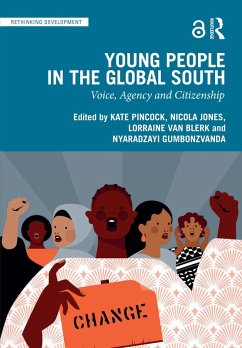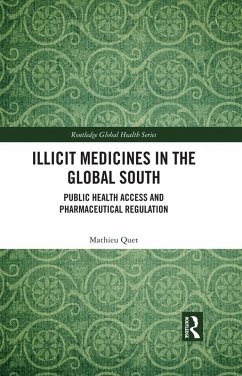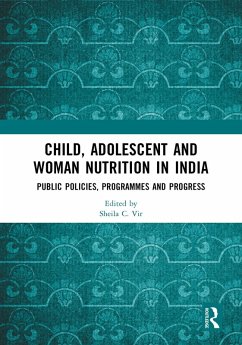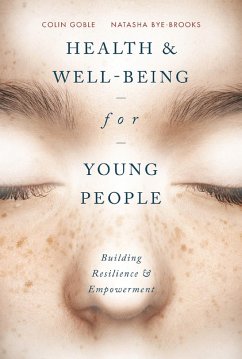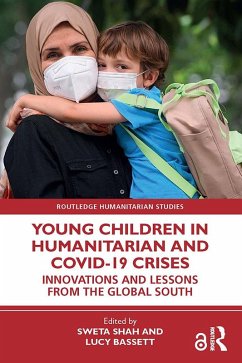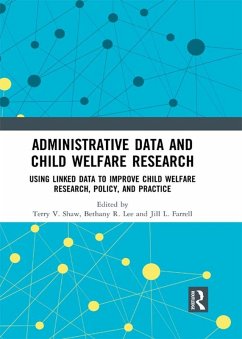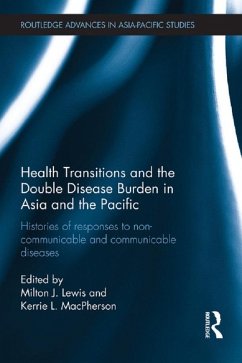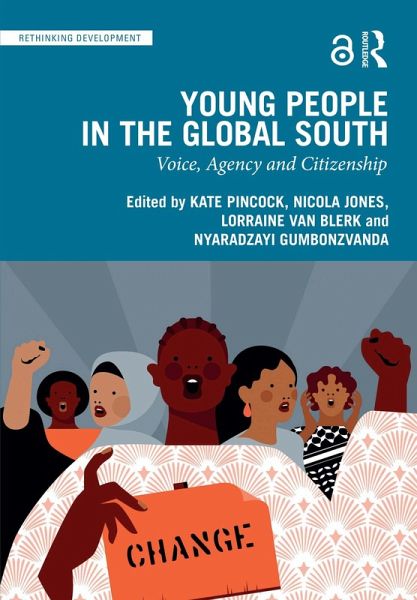
Young People in the Global South (eBook, PDF)
Voice, Agency and Citizenship
Redaktion: Pincock, Kate; Gumbonzvanda, Nyaradzayi; Blerk, Lorraine van; Jones, Nicola

PAYBACK Punkte
0 °P sammeln!
Young People in the Global South: Voice, Agency and Citizenship explores the spatial, relational, affective and material dimensions of adolescents' and young people's civic engagement and political participation in lower- and middle-income contexts. This textbook questions how the 'everyday politics' of exercising voice and agency is experienced at different scales, from the interpersonal to the global.It explores how structural inequalities and marginalisation, as well as social norms and attitudes, shape how voice, agency and participation are expressed by diverse young people in particular ...
Young People in the Global South: Voice, Agency and Citizenship explores the spatial, relational, affective and material dimensions of adolescents' and young people's civic engagement and political participation in lower- and middle-income contexts. This textbook questions how the 'everyday politics' of exercising voice and agency is experienced at different scales, from the interpersonal to the global.
It explores how structural inequalities and marginalisation, as well as social norms and attitudes, shape how voice, agency and participation are expressed by diverse young people in particular contexts with unique histories. Contributing authors focus on the experiences of young people who are marginalised based on age, gender, sexuality, disability, citizenship status and geographical location. Together they show how ageing through adolescence enables or constrains agency and voice. Textbook features include case studies on Africa, Asia, the Middle East and Latin America, as well as reflective accounts authored by adolescents and young people themselves, and discussion questions.
Filling a key gap in the knowledge about the concerns and experiences of young people in contexts beyond the Global North, this textbook will be of interest to academics, students and practitioners in the fields of childhood and youth studies, international development, social movements, human geography, sociology and comparative politics.
The Open Access version of this book, available at http://www.taylorfrancis.com, has been made available under a Creative Commons Attribution-Non Commercial-No Derivatives (CC BY-NC-ND) 4.0 license.
It explores how structural inequalities and marginalisation, as well as social norms and attitudes, shape how voice, agency and participation are expressed by diverse young people in particular contexts with unique histories. Contributing authors focus on the experiences of young people who are marginalised based on age, gender, sexuality, disability, citizenship status and geographical location. Together they show how ageing through adolescence enables or constrains agency and voice. Textbook features include case studies on Africa, Asia, the Middle East and Latin America, as well as reflective accounts authored by adolescents and young people themselves, and discussion questions.
Filling a key gap in the knowledge about the concerns and experiences of young people in contexts beyond the Global North, this textbook will be of interest to academics, students and practitioners in the fields of childhood and youth studies, international development, social movements, human geography, sociology and comparative politics.
The Open Access version of this book, available at http://www.taylorfrancis.com, has been made available under a Creative Commons Attribution-Non Commercial-No Derivatives (CC BY-NC-ND) 4.0 license.
Dieser Download kann aus rechtlichen Gründen nur mit Rechnungsadresse in A, B, BG, CY, CZ, D, DK, EW, E, FIN, F, GR, HR, H, IRL, I, LT, L, LR, M, NL, PL, P, R, S, SLO, SK ausgeliefert werden.




